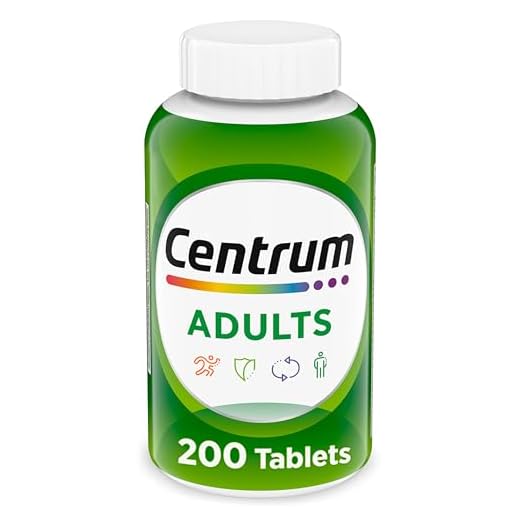







Multivitamins with zinc support your immune function by promoting the activity and development of essential immune cells like T lymphocytes and neutrophils. Zinc deficiency increases your susceptibility to infections, as it's critical for oxidative stress management and immune response. Regular intake can cut cold symptoms by about 33%, which highlights its effectiveness. Additionally, zinc works synergistically with other vitamins, such as A, C, and D, to boost overall immune resilience. For those at risk of deficiencies, especially older adults, these multivitamins serve as a proactive health measure. There's plenty more to explore regarding their ideal benefits.
Key Takeaways
- Zinc is essential for the development and activity of immune cells, enhancing the body's ability to combat infections.
- Multivitamins with zinc can reduce the duration and severity of common cold symptoms by approximately 33%.
- Adequate zinc intake supports antioxidant activity, reducing oxidative stress that can impair immune function.
- Zinc works synergistically with vitamins A, C, and D to bolster immune responses and enhance overall health.
- Regular supplementation of multivitamins can help prevent micronutrient deficiencies, particularly in older adults who are at higher risk.
Role of Zinc in Immunity
Zinc is an essential mineral that's important for robust immune function. It plays a pivotal role in the development and activity of immune cells, particularly T lymphocytes and neutrophils, which are crucial for combating infections. When you experience a deficiency in zinc, your immune responses become impaired, leading to an increased susceptibility to infections. This deficiency affects approximately two billion people worldwide, making it a significant public health concern.
For older adults, vegetarians, and individuals with specific health conditions, maintaining adequate zinc levels is particularly important. Supplementation through multivitamins can help you achieve this, ensuring your immune function remains robust. Research indicates that zinc supplementation may reduce the duration of common cold symptoms by about 33%, underscoring its role in respiratory health.
Furthermore, regular intake of zinc supports antioxidant activity, helping to mitigate oxidative stress, which can negatively impact immune function. By incorporating zinc-rich multivitamins into your daily routine, you actively support your immune system and reduce your risk of illness. Therefore, understanding zinc's role in immunity is important for maintaining overall health and well-being.
Benefits of Multivitamins
Taking multivitamins can greatly enhance your overall health, particularly when they include zinc. These essential supplements support your immune function by fostering the development and activity of immune cells, such as T-lymphocytes and neutrophils, which are critical for combating infections and inflammation. Additionally, vitamin D, known for its role in immune modulation, works synergistically with zinc to enhance the immune response. Regular intake of multivitamins containing zinc helps prevent deficiencies; approximately 2 billion people globally suffer from zinc deficiency, which can considerably impair immune health.
Moreover, studies indicate that zinc can reduce the duration of cold symptoms, with zinc lozenges potentially shortening colds by up to 33%. This is essential for maintaining your daily activities and overall well-being. Additionally, when zinc is combined with other key vitamins like A, C, and D in multivitamins, it synergistically supports various aspects of immune function.
This combination not only enhances your immune response but also contributes to overall health resilience, making your body better equipped to handle illnesses. By incorporating multivitamins with zinc into your routine, you're taking an important step toward bolstering your immune system and protecting your health.
Key Vitamins Supporting Immune Health
Key Vitamins Supporting Immune Health
While many people recognize zinc's importance for immune health, other key vitamins also play essential roles in supporting and enhancing immune function. Vitamins such as A, C, and D are important for maintaining an effective immune response. Vitamin A helps regulate the immune system and is fundamental for the development of immune cells. Vitamin C acts as a powerful antioxidant, helping to combat oxidative stress and inflammation, which can impair immune function. It also enhances the production of white blood cells, critical for fighting infections. Regular intake of vitamin C is important, as the body cannot produce or store it, making daily recommended intake essential for peak health.
Vitamin D, on the other hand, is known for its role in modulating the immune response. Deficiencies in vitamin D have been linked to increased susceptibility to infections, highlighting its significance in immune health. Together with zinc, these vitamins create a synergistic effect that can improve immune function and resilience.
Regular supplementation through multivitamins containing these key vitamins, alongside zinc, can provide thorough support for your immune health. This is particularly beneficial for older adults, who may experience micronutrient deficiencies that compromise their immune responses. By prioritizing these vitamins, you're taking proactive steps to bolster your defense against infections.
Micronutrient Deficiencies and Immune Function
Micronutrient deficiencies can have a profound impact on your immune function, increasing vulnerability to infections and illnesses. Zinc, a critical mineral for immune system health, plays an essential role in the development and function of immune cells. When you're deficient in zinc, it can lead to impaired immune responses, increased inflammation, and a heightened risk of respiratory infections. Clinical studies have consistently shown that adequate zinc intake is linked to better immune responses, especially in older adults who often experience immune decline. Additionally, supplements such as Nature's Bounty Vitamin C + Rose Hips can complement zinc by enhancing immune support and providing powerful antioxidant protection.
Regular supplementation with multivitamins containing zinc can enhance plasma zinc levels, improving your immune function and potentially reducing the duration and severity of illnesses like the common cold. Furthermore, the synergistic effect of zinc and other micronutrients, such as vitamin C, underscores the importance of addressing multiple deficiencies simultaneously. By incorporating multivitamins into your routine, you're not just filling gaps in your diet; you're actively supporting your immune system's ability to fight off infections. This proactive approach to managing micronutrient deficiencies can greatly bolster your overall immune health, making it an essential consideration for maintaining well-being, particularly as you age.
Study Insights on Multivitamin Impact
Research into the effects of multivitamins on immune function reveals both promising insights and areas needing further exploration. A recent study demonstrated that multivitamin and mineral (MVM) supplementation remarkably boosted plasma vitamin C levels by 126% and serum zinc levels by 43% in older adults, suggesting improved micronutrient status. However, despite these increases in zinc, there were no notable changes in immune function metrics, such as neutrophil phagocytosis or cytokine levels, after 12 weeks of supplementation.
This finding raises questions about the direct impact of MVMs on immune responses. Given that approximately 35% of older adults are micronutrient deficient, regular MVM supplementation may mitigate infection risks and enhance overall health outcomes. Zinc is essential for ideal immune cell function, and deficiencies can compromise immune responses, underscoring its importance in MVM formulations.
While the study indicates that MVMs can enhance nutrient intake, it also highlights the need for further research to understand their direct effects on immune function in larger populations. To summarize, while promising, the role of multivitamins, especially those containing zinc, in supporting immune health remains an area ripe for deeper investigation.
Food Sources of Essential Nutrients
A diverse array of food sources provides essential nutrients crucial for maintaining immune function. Zinc, an essential mineral, plays a critical role in supporting your immune system. You can find high levels of zinc in oysters, which contain about 32 mg per 3 ounces, making them one of the richest dietary sources. Other excellent food sources include lean meats, beans, nuts, and dairy, which help you meet the recommended dietary allowance (RDA) of 11 mg per day for men and 8 mg for women.
Incorporating foods rich in vitamin C, like citrus fruits, strawberries, and bell peppers, can enhance zinc's effectiveness and further support immune cell function. Additionally, selenium is another important mineral for immune health, found in Brazil nuts, tuna, and eggs. A balanced diet that integrates these nutrient-dense foods, including those high in vitamins A, C, D, and E, is crucial for peak immune function. By focusing on these key food sources, you can guarantee your body has the critical nutrients it needs to bolster your immune system effectively.
Recommendations for Supplementation
When considering supplementation, multivitamins containing zinc stand out for their potential to enhance immune function. Zinc plays an essential role in supporting the development and activity of immune cells, and deficiencies are linked to increased susceptibility to infections. The recommended dietary allowance (RDA) for zinc is 11 mg for men and 8 mg for women, highlighting the importance of adequate intake for ideal immune health.
For those at risk of deficiencies, particularly older adults, zinc supplementation can greatly improve health outcomes. Research shows that it not only reduces the duration and severity of colds but also supports respiratory health. As a result, incorporating multivitamins with zinc into your daily routine can be a proactive measure to bolster your immune system.
Combining zinc with other vitamins in multivitamins can lead to synergistic effects, further improving immune responses and reducing inflammation. Given that approximately 2 billion people globally are affected by zinc deficiency, regular intake of these supplements is essential for enhancing immune resilience. By prioritizing multivitamins with zinc, you can take a considerable step towards achieving better overall health and supporting your immune system effectively.
Conclusion
Incorporating multivitamins with zinc into your daily routine can greatly enhance your immune function. By addressing micronutrient deficiencies, you not only boost your body's natural defenses but also support overall health. Research shows that the right combination of vitamins can lead to better immune responses, especially during cold seasons. So, by simply choosing a multivitamin, you might just fortify your immune system while enjoying the convenience of a single supplement—it's a small step with potentially big benefits.






